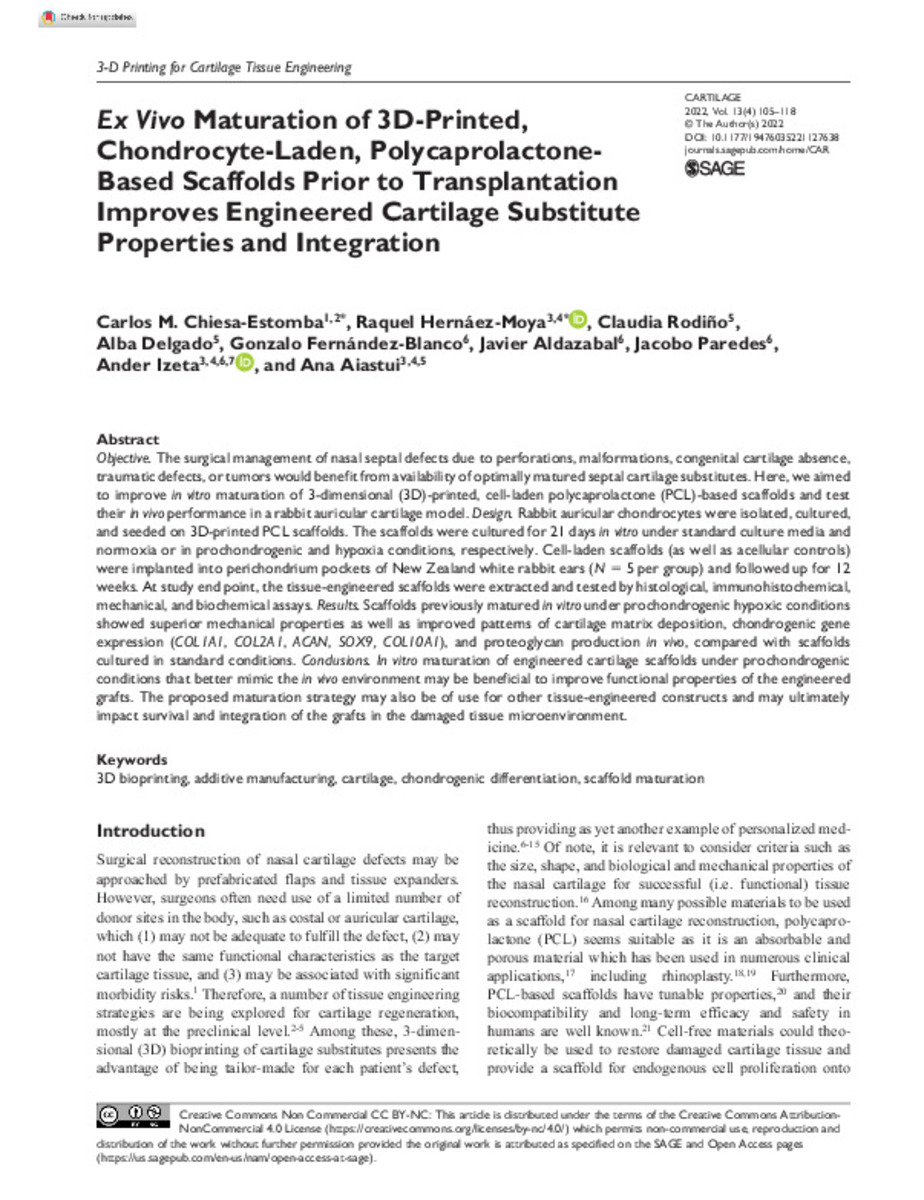Ex vivo maturation of 3D-Printed, chondrocyte-laden, polycaprolactone-based scaffolds prior to transplantation improves engineered cartilage substitute properties and integration
Files in This Item:
Statistics and impact
Items in Dadun are protected by copyright, with all rights reserved, unless otherwise indicated.







